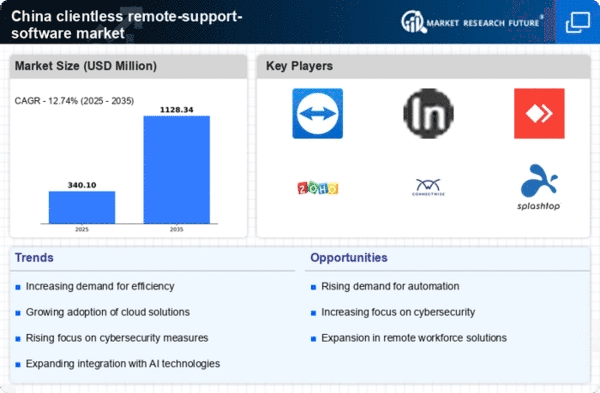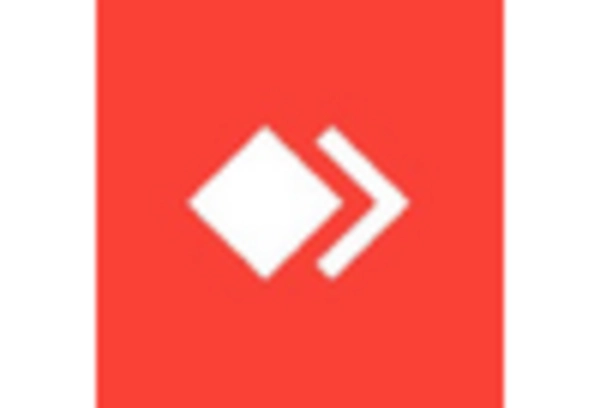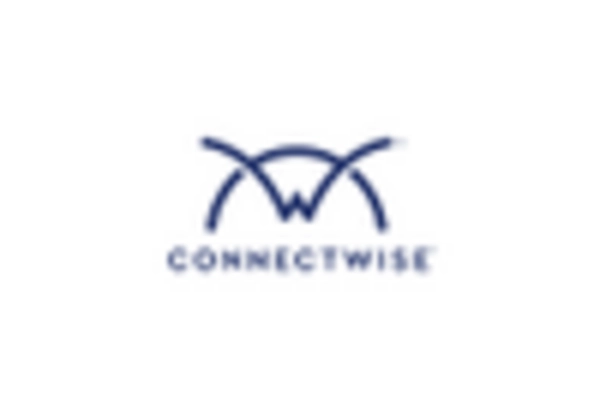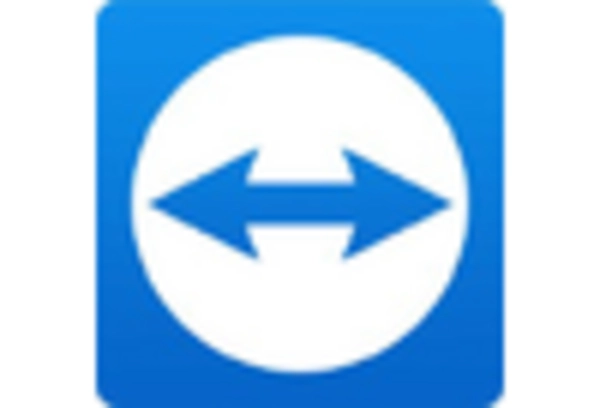Growing E-commerce Sector
The expansion of the e-commerce sector in China significantly impacts the clientless remote-support-software market. With online retail sales projected to reach $2 trillion by 2025, businesses are increasingly seeking efficient support solutions to manage customer inquiries and technical issues. The demand for clientless remote-support software is likely to rise as e-commerce platforms require reliable tools to ensure customer satisfaction and operational efficiency. This trend indicates a promising growth trajectory for the clientless remote-support-software market, as companies strive to enhance their customer service capabilities in a competitive landscape.
Increased Cybersecurity Concerns
As cyber threats become more sophisticated, the clientless remote-support-software market in China is witnessing heightened demand for secure remote access solutions. Organizations are increasingly prioritizing cybersecurity measures to protect sensitive data and maintain compliance with regulations. The market for cybersecurity solutions in China is projected to grow by 20% annually, reflecting the urgency for businesses to adopt secure remote-support software. This trend suggests that software providers must focus on integrating robust security features into their offerings to address the concerns of potential clients, thereby enhancing their competitive edge in the clientless remote-support-software market.
Regulatory Compliance and Standards
The clientless remote-support-software market in China is influenced by the need for compliance with various regulatory standards. As businesses face increasing scrutiny regarding data protection and privacy, the demand for software that meets these regulations is on the rise. The implementation of stricter data protection laws has prompted organizations to invest in clientless remote-support solutions that ensure compliance. This trend suggests that software providers must prioritize regulatory adherence in their offerings to capture market share and build trust with potential clients, thereby driving growth in the clientless remote-support-software market.
Rising Demand for Remote Work Solutions
The clientless remote-support-software market in China experiences a notable surge in demand as organizations increasingly adopt remote work policies. This shift is driven by the need for efficient collaboration tools that facilitate seamless communication and support. According to recent data, the remote work sector in China has expanded by approximately 30% in the past year, highlighting the growing reliance on digital solutions. Companies are seeking clientless remote-support software to enhance productivity and maintain operational continuity. This trend indicates a significant opportunity for software providers to cater to the evolving needs of businesses, ultimately driving growth in the clientless remote-support-software market.
Technological Advancements in Software Development
The clientless remote-support-software market in China benefits from rapid technological advancements that enhance software capabilities. Innovations such as improved user interfaces, faster connection speeds, and enhanced compatibility with various devices are driving the adoption of clientless solutions. The software development sector in China has seen an investment increase of 25% in the last year, indicating a strong focus on creating cutting-edge solutions. This trend suggests that as technology continues to evolve, the clientless remote-support-software market will likely expand, providing users with more efficient and effective support options.
















